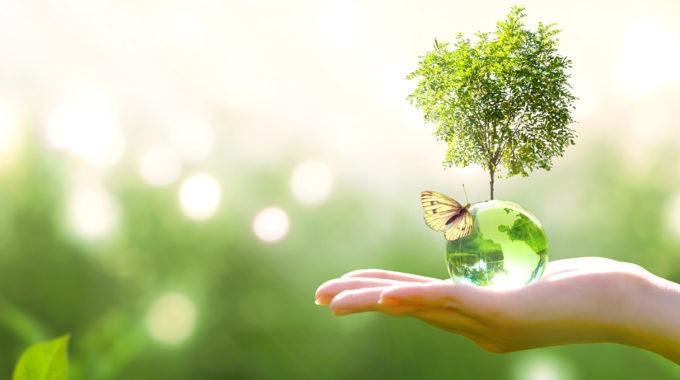Restore our Earth: it’s in your hands
This Thursday, April 22, is Earth Day – a day to educate, activate and expand the environmental movement worldwide. The day has been held every year since 1970. This year the theme is “Restore our Earth”. It’s all about reducing our environmental footprint and fixing the damage that’s already been done. It also encourages individuals to use their power as consumers and voters to help bring about real change.
While it might feel overwhelming or even futile for you as one person alone to bring about any genuine change, each individual’s actions can help to make a difference. And as a consumer, you’re in a prime position to make better choices for the planet. To help you get started, we share some of the ways Australia’s forward-thinking food producers and manufacturers are reducing their own global footprint so that, by choosing to buy their products, you can also step more kindly on the Earth.
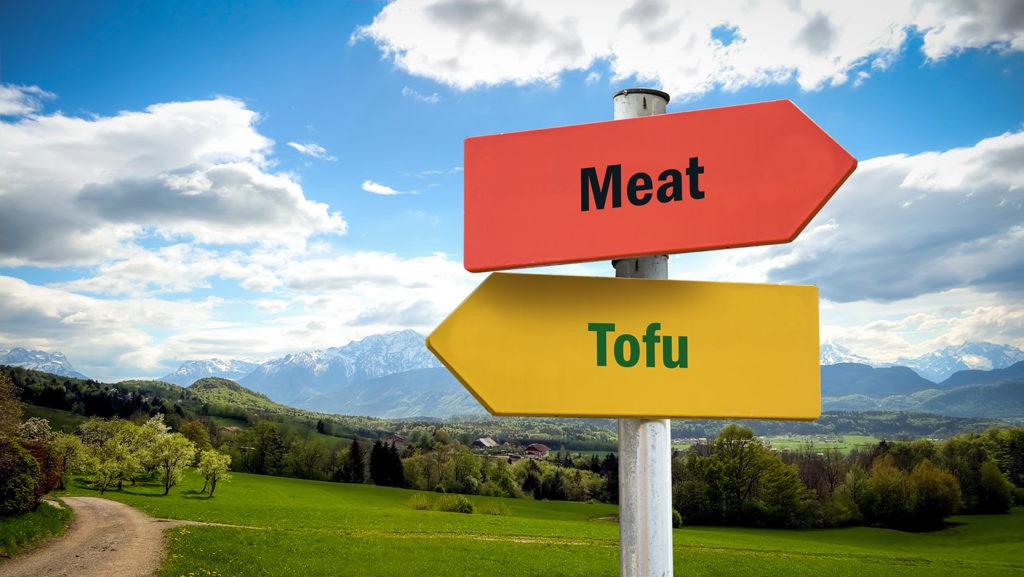
Meat: to eat or not to eat?
It’s estimated that agriculture is responsible for approximately a quarter of all global anthropogenic (caused by humans) greenhouse gas emissions. Animal agriculture is estimated to account for up to 80 percent of this.
It’s not just about cow burps, either. Producing meat requires a huge amount of resources, including water – animal agriculture uses about a third of all freshwater used globally. Livestock production also takes up a lot of land, and is a major cause of deforestation.
For many people, the solution is simple: stop eating meat altogether. But this isn’t an appealing option for the many Australians who enjoy meat in moderation. Or the farmers whose livelihoods depend on livestock production. While Australia’s entire red meat industry has set a goal to become carbon neutral by 2030, some Aussie meat producers have decided to get ahead of the game and take things into their own hands, offering planet-conscious meat-eaters a more environmentally-friendly option.
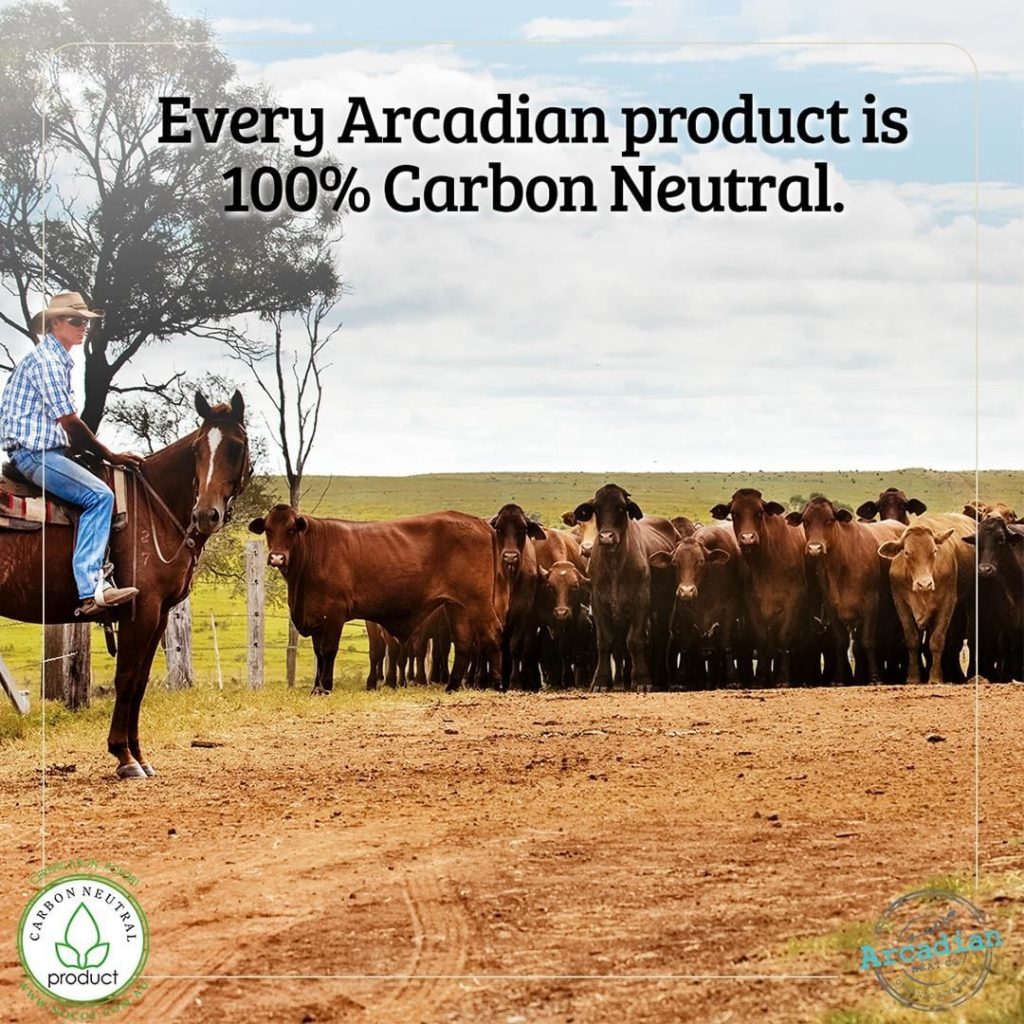
Leading the way in meat production
Queensland-based Arcadian Organic Meat Co. became 100 percent carbon neutral across its entire supply chain in June 2019. The company owns several brands – Cleaver’s Organic, Warilba Organic Lamb and Borrowdale Free Range Pork.
But there was another Aussie meat business that just pipped Arcadian at the post. Victorian-based Flinders + Co. became the world’s first meat company to become carbon neutral in December 2018. It has fully offset all carbon emissions not only from its business operations; but from every kilogram of meat sold. Flinders + Co. has a number of different brands from producers across Tasmania, Victoria, New South Wales and Queensland – Roaring Forties Lamb, Cape Grim Beef, Robbins Island Wagyu, Altair Grass Fed Wagyu, Westholme F1 Wagyu, Wanderer Beef, Nichols Poultry, Bass Strait Beef and the Vintage Beef Company. It also has its own in-house brand, Flinders Select.
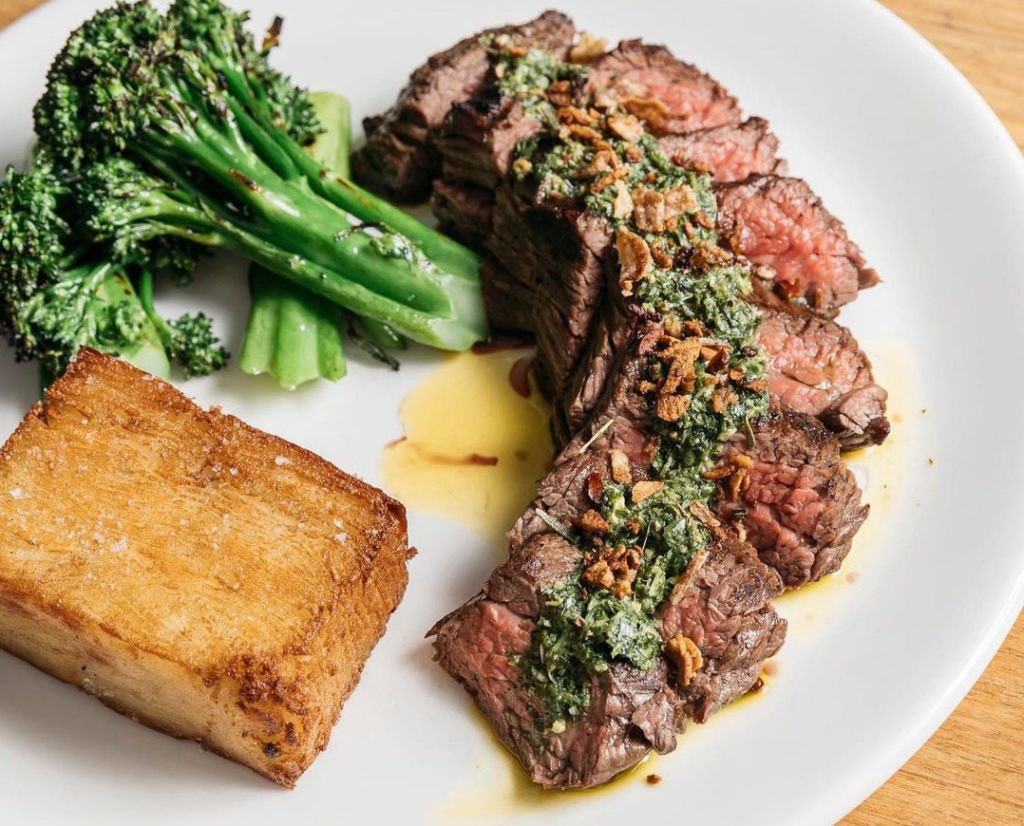
But how can you have carbon-neutral meat?
Flinders + Co. and Arcadian are both “NoCO2” businesses under the Carbon Reduction Institute’s NoCO2 program. They achieved this through purchasing carbon credits that offset or “neutralise” their carbon footprint. There are many ways businesses can offset their emissions. Some of the most common include renewable energy, reforestation and biodiversity projects that help to reduce future emissions, especially those that also offer community benefits such as employment, health and education opportunities.
Flinders + Co. offset the impact of its business by investing in several projects, including wind power in China and the LifeStraw project in Kenya. Wind projects in China reduce Flinders’ footprint and also improve health and boost renewable energy economic opportunities in China; LifeStraw produces water purification units that are distributed to some of the poorest families in Kenya. This allows them access to clean drinking water, without the need to burn fossil fuels to boil it first.
To offset its emissions, Arcadian has invested in the Mytrah Wind Power Farm in India. This is removing large amounts of carbon emissions by generating clean electricity for the Indian power grid. The project also provides benefits to surrounding villages by boosting access to education and clean water, as well as providing local employment opportunities.
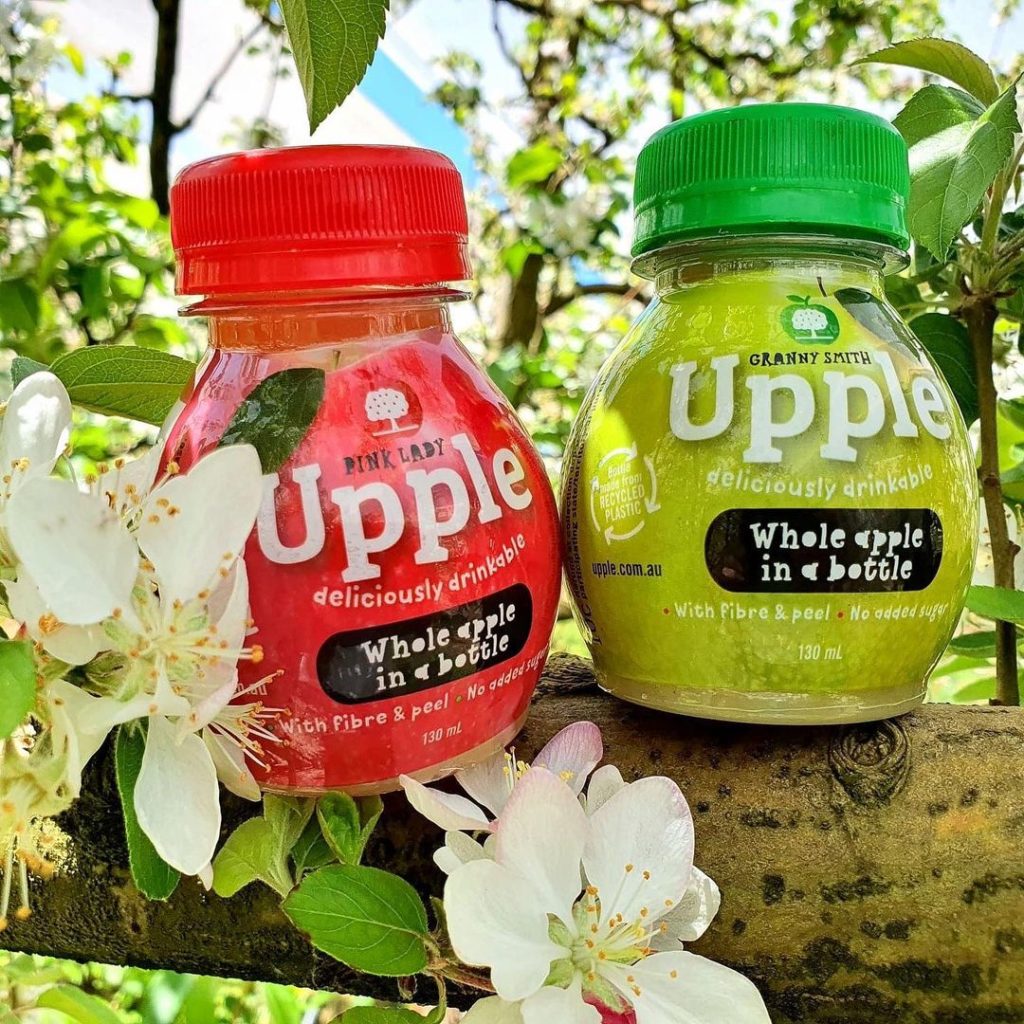
“Upcycled” foods
There’s a big difference between recycling and upcycling. Recycling is where waste is turned into a product or material that’s usually of lesser value or lower quality than the original product or material. Upcycling turns waste into something that’s of higher value.
Upcycling is a valuable tool in the fight against food waste, which is a major contributor to climate change. While you might think that any food you throw away will just decompose naturally, food waste in landfill is compacted and then covered with more waste, depriving it of oxygen. The waste then breaks down anaerobically (without air). This leads to the production of methane, a greenhouse gas 25 times more potent than carbon dioxide.
An embarrassingly large amount of fruit and vegetable waste is due to appearance alone. Perfectly good, nutritious fresh produce gets rejected just because it looks a bit wobbly. One Queensland apple producer has found a way to upcycle its rejected apples, turning it into a healthy and delicious drink. Upple, “the apple you can drink”, uses the entire apple – except for the core and pips. It’s created a valuable and appealing product that reduces waste and can also help fussy eaters increase their fruit intake.
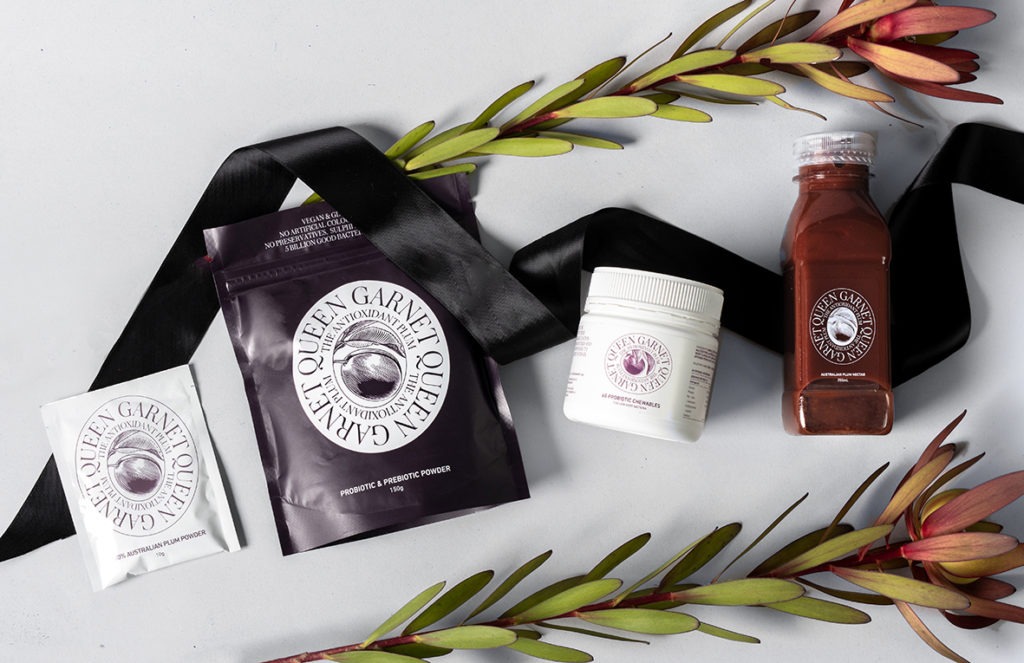
Royal resourcefulness
Brisbane company Nutrafruit has also found a way to make the most of unwanted fruit, creating value-added products from rejected Queen Garnet plums. These contain up to seven times more antioxidants than other plum varieties. The company produces powders, nectars and chewables from the plums, creating truly functional foods that can offer genuine health benefits while also reducing food waste.
Researchers from Victoria University found that daily consumption of nectar from the Queensland-bred Queen Garnet plum decreases blood pressure and the risk factors of metabolic syndrome. This is a cluster of conditions that occur together, increasing the risk of heart disease, stroke and type 2 diabetes.
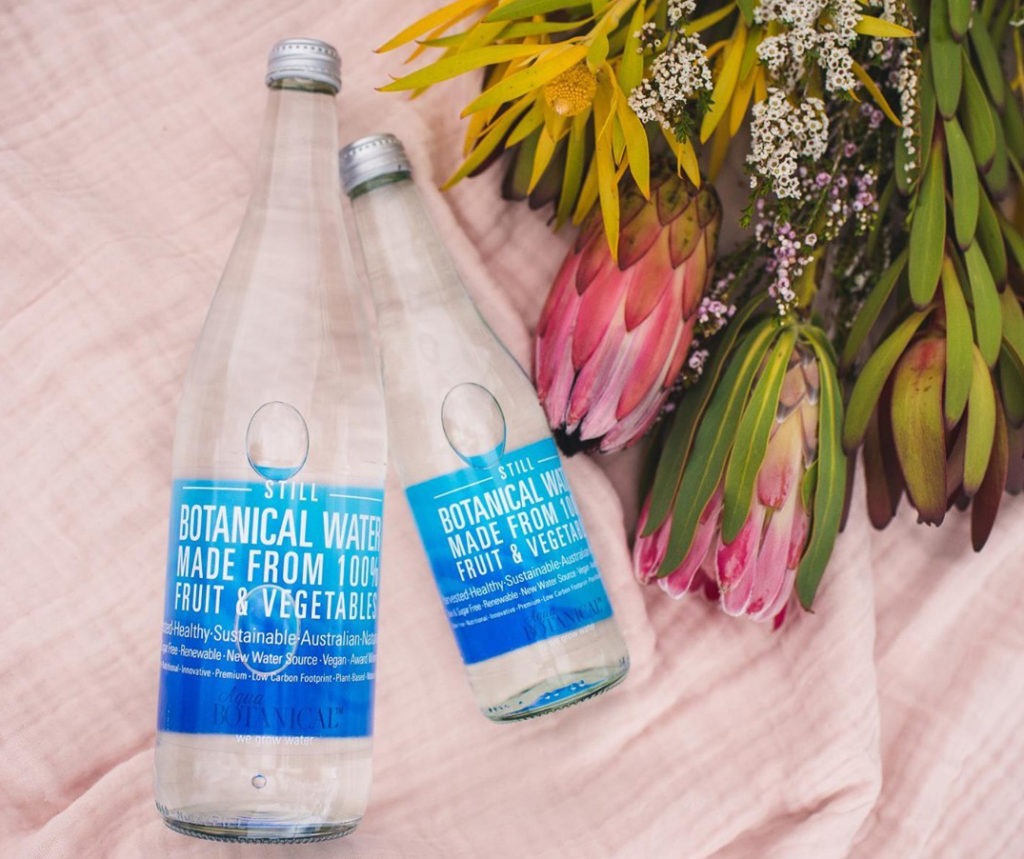
Award-winning water
One Aussie company has found a clever way to upcycle waste and help combat water scarcity at the same time. While AquaBotanical might look like any other fancy bottled water, this product is sourced entirely from fruit and vegetables.
When farmers can’t sell their fresh produce whole, they’ll often sell it to juice manufacturers. Fruit and veg naturally contain water, and when they’re pressed to extract their juices, they also produce a large volume of water. Previously, this water by-product wasn’t usable. However, chemical engineer and AquaBotanical founder Bruce Kambouris found a way to filter and mineralise it, scoring the company the 2015 Australian Institute of Food Science & Technology Food Industry Innovation Award and the Beverage of the Year award at the 2019 Australian Food and Beverage Industry Awards. The Mildura-based company’s process can be applied to any fruit or vegetable. It could also be a game-changer for third world countries, where water may not be drinkable because it’s contaminated.
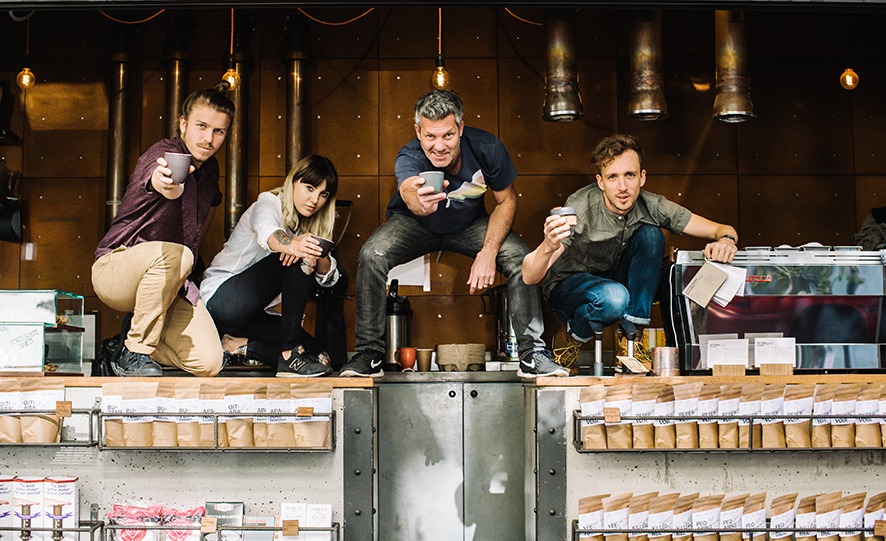
Missions against emissions
Sydney-based coffee roaster, wholesaler and cafe group Single O has announced that it will achieve carbon neutral status in time for Earth Day. The business will be relaunching its “No Death to Coffee” initiative as part of a long-term goal to achieve zero emissions.
In its “Missions against Emissions”, which will run from April 22 to May 14, Single O will be undertaking a number of actions to reduce its carbon footprint… Which Single O General Manager Mike Brabant admits is still “the size of an army boot”. On Earth Day, Single O will partner with Three Blue Ducks to ban single-use cups across its venues for the day. The initiative aims to inspire an additional 50 cafes to take part, which could remove 10,000 cups from the waste stream in a single day. (If Australia’s 20,000 cafes removed single-use cups for a year 66,900 tonnes of carbon could be saved.)
On April 23, Single O will launch Stone’s Throw. This is its Missions against Emissions blend, using beans from Sumatra, Papua New Guinea and Byron Bay, which use 50 percent fewer shipping emissions than a typical Single O blend. In May, Single O’s Surry Hills cafe will offer a range of plant-based meals and reduce the price of plant milks to match dairy.
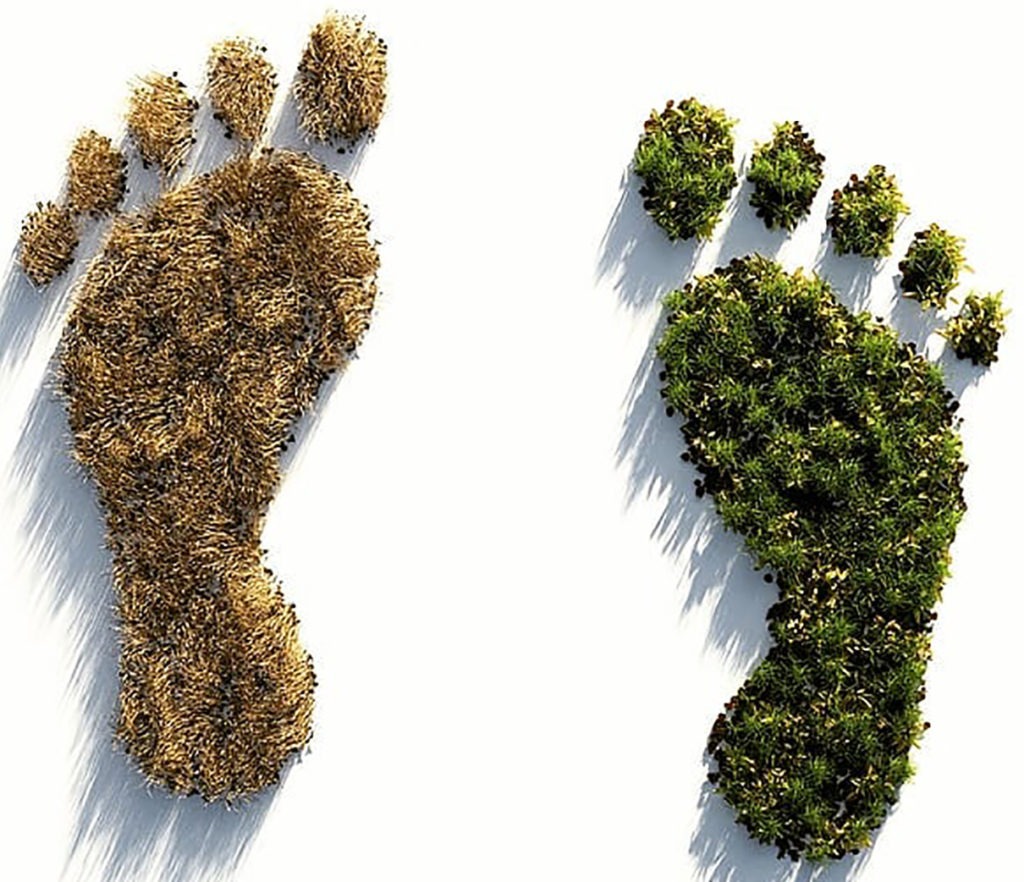
This is just the beginning
As food producers become more aware of how important the environment is to consumers, more businesses will start joining the planet-friendly party. By choosing to buy carbon-neutral or sustainable products, you’re not just making a difference to the planet; you’re also signalling to other companies that this is the direction they need to head in if they want to remain viable. Below, we’ve shared just a few more Aussie companies that are doing the right thing by Mother Earth. Choose to support them, and you’ll be helping to pave the way for cleaner, greener Australian food and beverages.
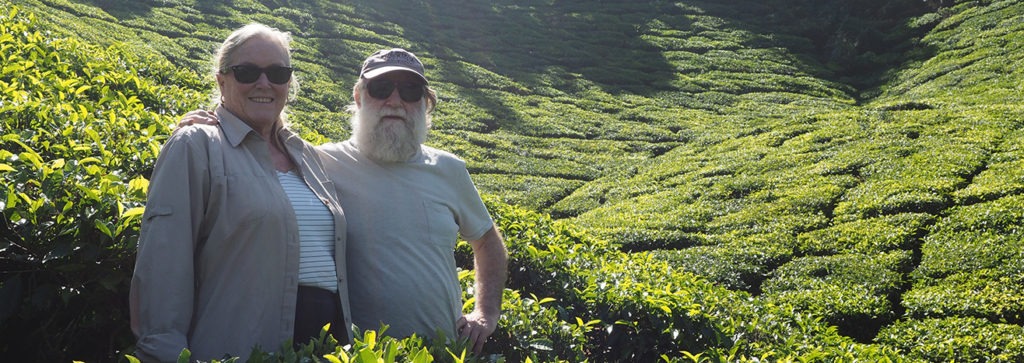
Jasper Coffee
The trailblazing couple behind Jasper Coffee took the steps to become 100 percent carbon neutral all the way back in 2009, before it was even trendy. The business is also B Corp certified, certified organic and Fairtrade certified. Truly a force for good.
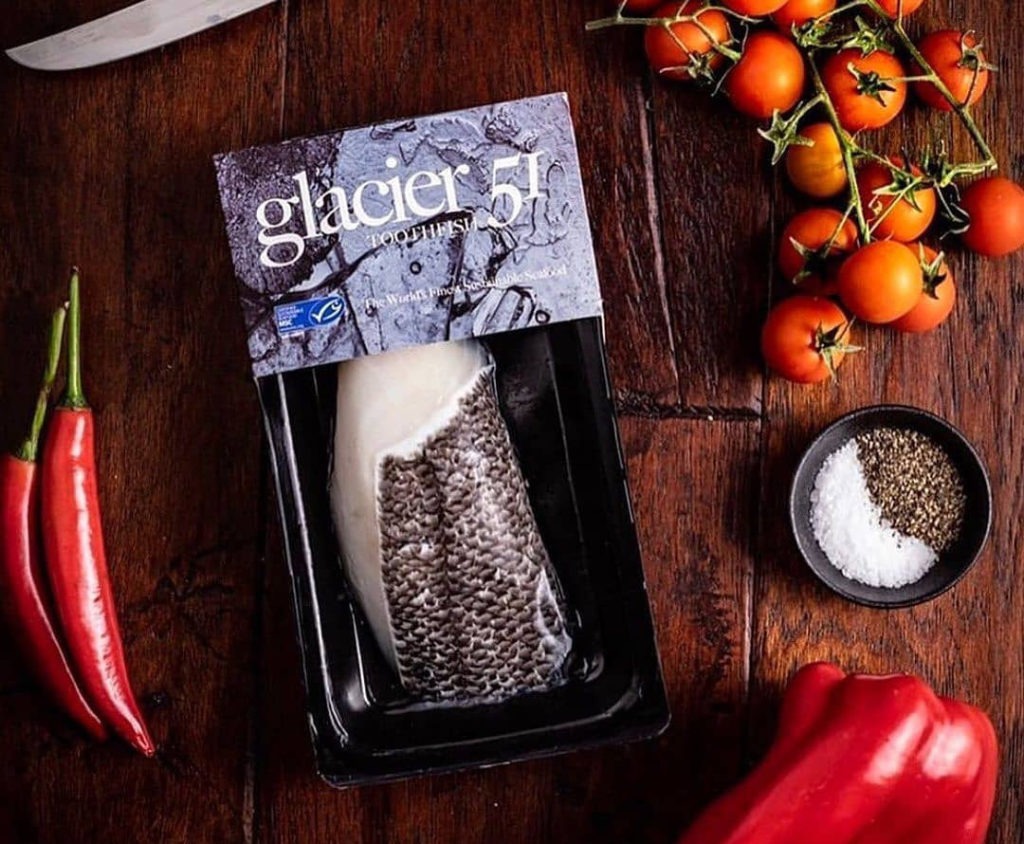
Austral Fisheries
Perth-based Austral Fisheries was the first, and is currently the only commercial fishing company in the world to be certified as carbon neutral. They plant native trees in Australia to offset all carbon emissions.
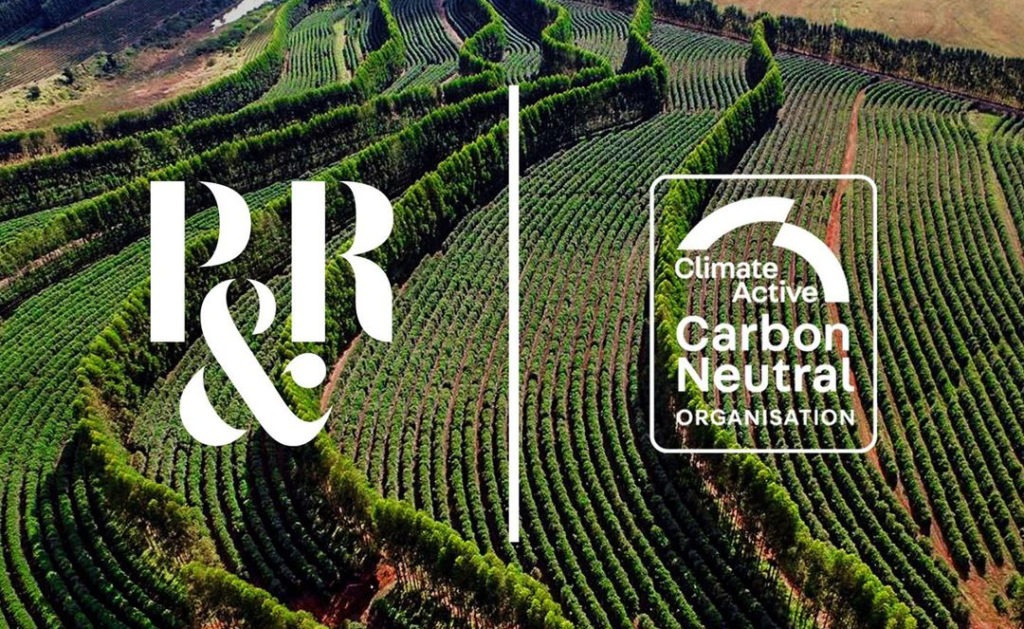
Pablo & Rusty’s Coffee Roasters
Pablo & Rusty’s has been certified carbon neutral since October 2020. The business offsets its emissions through a hydropower project in India, and has also converted to solar power, uses biodegradable cups and recycles its waste by giving husk to local farming initiatives and sending grounds to compost.
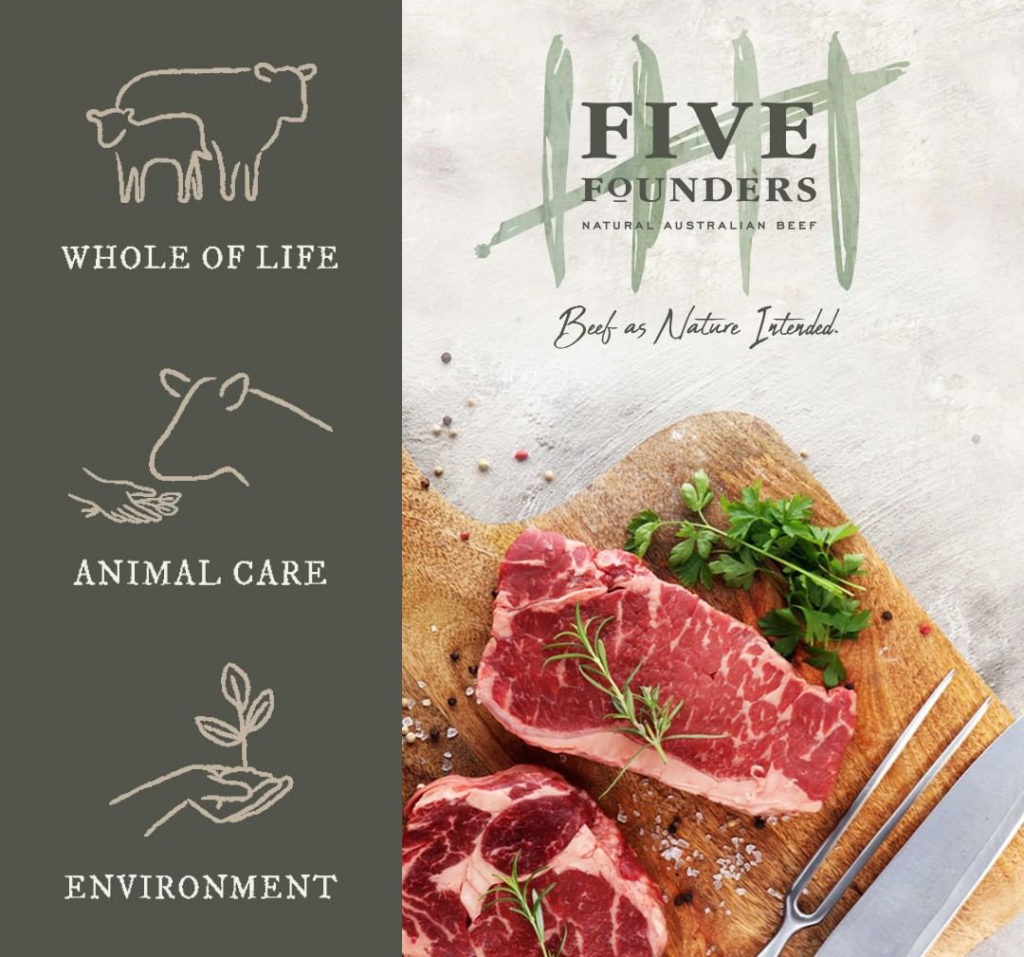
Five Founders
This northern Australian beef brand became certified carbon neutral in 2019. This was achieved by choosing cattle genetics that reduce methane emissions, practising soil regeneration, implementing renewable solar energy initiatives and purchasing federal government-approved carbon credits for Emission Reduction Fund projects.
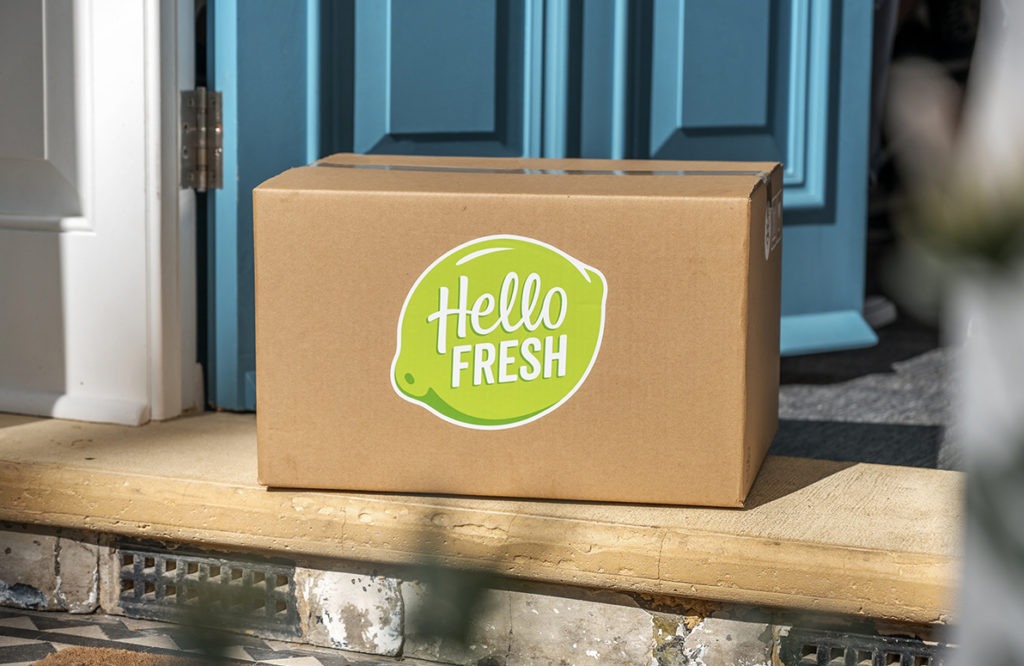
HelloFresh
Last year, meal kit company HelloFresh committed to offsetting all direct CO2 emissions caused by its internal operations and offices, plus all emissions from corporate travel and delivery to customers. The company does this by investing in green initiatives via Planetly.
To find out more about Earth Day, head to earthday.org


